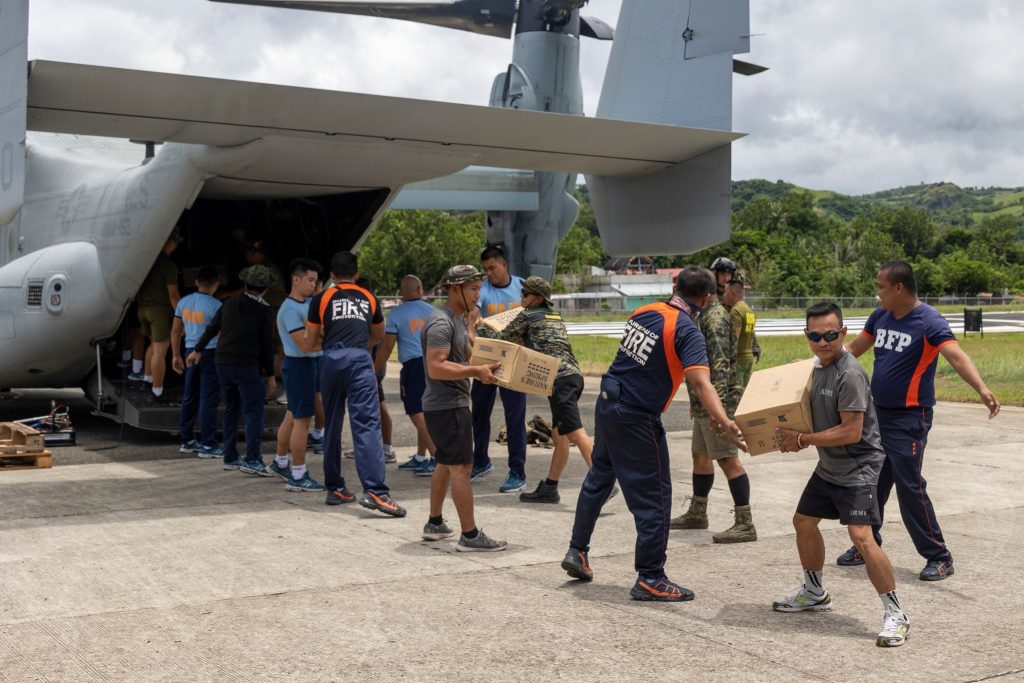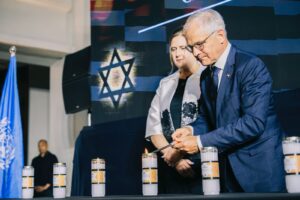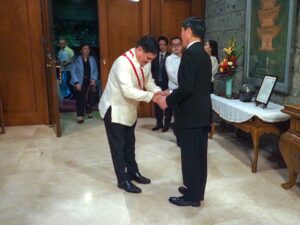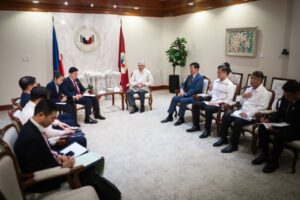
Within 24 hours, 35 Marines and Sailors, four MV-22B Ospreys, and four CH-53E Super Stallions, transitioned from preparation to redeploy home from the Philippines, to supporting relief efforts and lifesaving assistance in the wake of Typhoon Egay.
Following the conclusion of Marine Aviation Support Activity (MASA) 23, and at the request of the Armed Forces of the Philippines, Marine Medium Tiltrotor Squadron (VMM) 163 (Reinforced), Marine Aircraft Group 16, 3rd Marine Aircraft Wing, I Marine Expeditionary Force was tasked to support relief efforts in northern Philippines.
Typhoon Egay made landfall near remote northern Fuga Island in the Philippines at approximately 3:10 a.m. on July 26.
The super typhoon, which had a 435-mile band of rain and wind with gusts up to 146 miles per hour, battered 15 municipalities, affecting more than 500,000 individuals and driving local governments to declare a province-wide state of calamity.
The detachment was preparing to return to home station following MASA 23 when they were dynamically re-tasked on July 30, and within 24 hours, all eight aircraft were airborne from Antonio Bautista Air Base in Puerto Princesa, Palawan, to Subic Bay International Airport to begin loading and delivering relief supplies, provided by the Philippine government.
“The opportunity to help our Philippine Allies in time of need, especially after training together during an exercise, is a privilege. There is no better way to express our commitment here in the Philippines than to respond at a moment’s notice in time of need,” VMM-163 (Rein.) Commanding Officer Lt. Col. David G. Batcheler said.
The U.S. Marines worked alongside Filipino service members and first responders in Basco, Batanes Province, who eagerly lined up at the rear of the aircraft to pass boxes of food and water from the aircraft to staging areas for further distribution.
“The capability of a reinforced squadron is truly powerful. The combination of the range of the medium-lift MV-22 and the heavy-lift capability of the CH-53, plus the ability of both platforms to take off and land in austere environments, is a force to be reckoned with for this type of challenge,” Batcheler added.
Due to severe flooding, aerial supply and assistance was the only option for many locations throughout the region; the Ospreys flew supplies an 800-mile round trip daily from Subic Bay International Airport to the Batanes Islands, north of Luzon in the Philippine Sea, and the Super Stallions delivered supplies around northern Luzon.
During three days of relief efforts, VMM-163 (Rein.) delivered approximately 64,000 pounds of relief supplies, across 3,900 nautical miles to affected communities, refueling in coordination with the host nation at expeditionary locations as needed.
On the final day of relief efforts, Philippine Secretary of National Defense Gilberto Teodoro and Armed Forces of the Philippines Chief of Staff Lt. Gen. Romeo S. Brawner visited the Enhanced Defense Cooperation Agreement (EDCA) site at Lal-lo Airport in Cagayan Province, where the relief efforts were concluding. EDCA sites facilitated rapid and efficient response from U.S. forces, which supports the mutual mission of joint crisis response, combined training, exercises and interoperability.
The forward presence and ready posture of I Marine Expeditionary Force assets in the region facilitated rapid and effective response to crisis, and capitalized on coordination capabilities and relationships built with the host nation during the just-completed exercise MASA 23, reinforcing the value of such exercises and demonstrating U.S. commitment to Allies and partners.
The Marine Air-Ground Task Force has long provided a broad spectrum of response options when U.S. and allied interests require immediate crisis response. As the element of the Marine Air-Ground Task Force that provides agility and extends operational reach, 3rd Marine Aircraft Wing is uniquely equipped with the people, the assets, and the capability to meet this mission.


